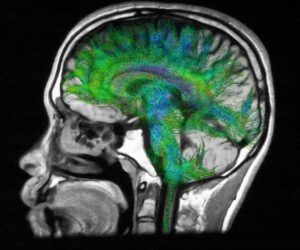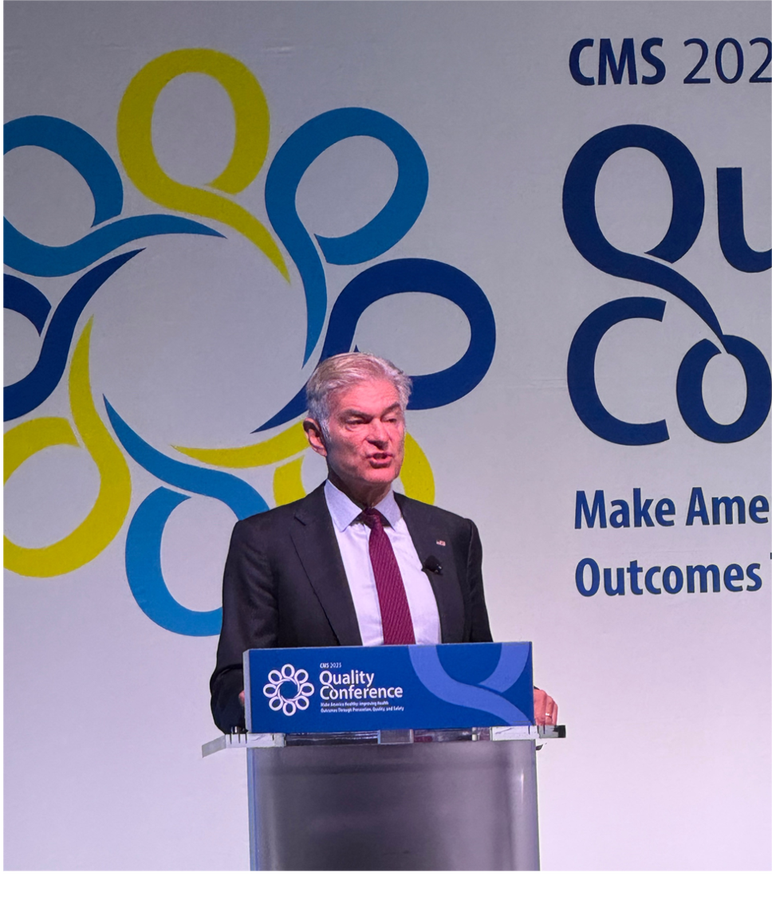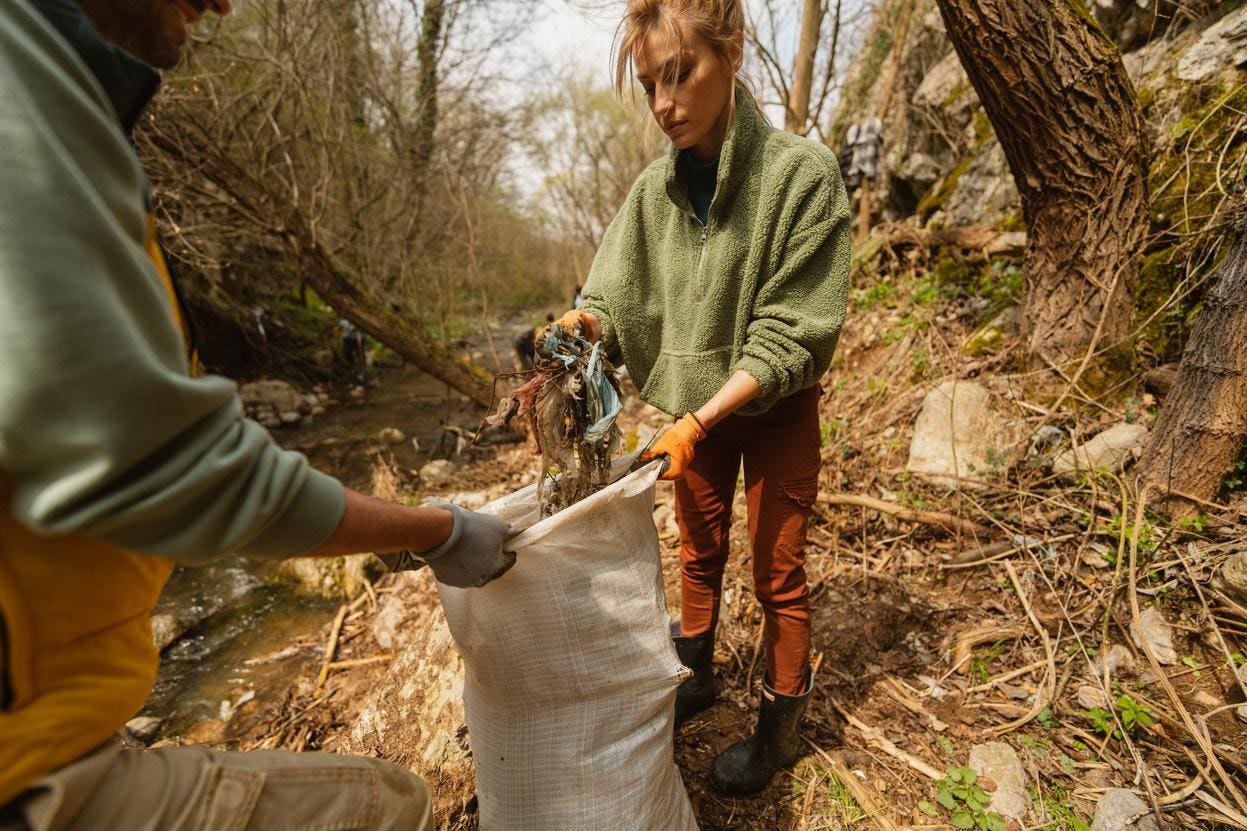Eldest daughters often over-identify with caregiving roles before they even understand them. Here’s how they can find partners who don’t compel them to repeat history.
getty
If you’ve ever heard the phrase “eldest daughter syndrome,” you probably already know what it means. It’s the shorthand for a pattern many firstborn daughters recognize all too well: growing up carrying emotional and domestic responsibilities that should never have been theirs to bear.
This can look like always packing siblings’ lunches, mediating family fights or even bigger sacrifices like letting go of allowances to plug gaps in the family budget. And in too many households, the eldest daughter is the one listening to her parents’ frustrations, absorbing adult-level stress years before she even learned to process her own.
But while this cultural story is widely told, one question is rarely asked: what does all of this do to her?
According to a 2024 literature review, the damage might be five-fold. Eldest daughters across cultures and time likely show five universal qualities and patterns:
- Perfectionism and high-achievement
- Caregiving and nurturing
- Conflict mediation
- Independence and self-reliance
- Self-sacrifice and suppression of needs.
If you are an eldest daughter, chances are, you may also have grown up to become a perfectionistic, peace-keeping, hyper-independent, self-sacrificial adult with a penchant for caregiving.
On one hand, you are competent, capable and resilient. On the other, you may constantly be exhausted by the invisible labor of always being the one who steps up.
A complex individual like this may need more than just an ordinary partner. She might need someone who understands her layered history, and who can meet her in it without exploiting it.
What Drives An Eldest Daughter In A Relationship?
Although “eldest daughter syndrome” is not a clinical diagnosis, it has gained recognition across both academic and popular spaces. Thousands of women on TikTok, for instance, have documented the uncanny accuracy of this identity: children who were treated more like third parents than like kids.
In psychological terms, the eldest daughter syndrome often overlaps with the experience of the parentified child.
Research from the University of Virginia explored exactly how this plays out in adult relationships. The researchers surveyed over 200 college students in relationships, and followed up with 39 couples to compare both partners’ accounts of the same dynamic. The findings were sobering:
- The more a child had been asked to emotionally care for a parent — to soothe, to manage, to stabilize — the more likely they were to become compulsive caregivers in their romantic lives. They learned to equate love with emotional labor.
- This pattern was especially strong in cases where the child had to emotionally care for their father, though it appeared in maternal dynamics as well. By the time these eldest daughters began dating, caregiving wasn’t a choice anymore. It was a reflex.
And that reflex carried consequences. Compulsive caregiving was linked not only to lower relationship satisfaction, but also to higher levels of depression. Ironically, the very behaviors that made them feel like “good partners” left them depleted, unseen and unloved.
Even more telling, their partners often reported low satisfaction too. A relationship where one person carries all the emotional load doesn’t feel like partnership — it can feel like control, imbalance or quiet suffocation. While the eldest daughter might say, “I’m doing everything I can to make this work,” her partner might feel smothered, infantilized or entirely invisible.
This is why eldest daughters cannot afford to be passive when it comes to choosing partners. Their history has trained them to take on too much. Their healing requires them to choose differently.
What Happens When Eldest Daughters Choose The Wrong Partners?
Contemporary philosopher Alain de Botton has observed that we are often drawn, unconsciously, to partners who replicate the emotional contours of our childhood. Not because those dynamics were healthy, but because they are familiar. We might be compelled to re-enter the old script in hopes of finally rewriting the ending.
For eldest daughters, this often translates into picking partners who are avoidant, immature or emotionally unskilled. In heterosexual dynamics, it can look like a “Peter Pan and Wendy” pairing: the responsible Wendy holding everything together while the boyish Peter Pan resists growing up.
Intuitively, we might feel like “Peter Pan” might be the only problem in this equation. However, Wendy’s reflex to over-function or to clean up emotional messes that aren’t hers to carry, can be just as toxic. Healing, therefore, isn’t just about spotting difficult partners, it’s also about seeking ones who break the cycle entirely.
So, what qualities should eldest daughters look for in a partner? Two in particular rise to the top.
1. They Clean Up After Themselves (Literally And Figuratively)
The first quality can seem a little too simple at first glance: self-responsibility. A partner who handles their own life. This includes their dishes, their appointments and, most importantly, their feelings. Someone who does not hand over their unprocessed anger, disappointment or fear for you to manage on their behalf.
This goes far beyond domestic chores, to the very heart of attachment theory. The University of Virginia study found that emotional parentification was closely tied to preoccupied attachment. This attachment style is characterized by anxiety, over-investment and the constant pursuit of closeness as a way to secure love. The underlying belief might look like “If I care hard enough, if I do enough, then I will be loved in return.”
When that belief meets an emotionally underdeveloped partner, the eldest daughter steps automatically into the role she knows best: a caretaker, a fixer, a manager or all three. But in doing so, she might unknowingly resurrect parts of her childhood, and reopen the wounds they left behind.
This is why self-responsibility is essential. A healthy partner does not offload their feelings like dirty laundry for someone else to wash. Instead, they own it and handle it their own way. They regulate their own emotions, repair their own mistakes and clean up their own messes.
2. They Tell You The Truth Without Tearing You Down
The second quality is about constructive communication.
Eldest daughters’ tendency to over-function often crosses over into overcorrection. The years they spent anticipating criticism and reading the subtext behind every sigh or shift in tone trains them to monitor themselves constantly. The ruminatory loop in their heads might lead to a perpetual analysis-paralysis: “Did I say too much? Was that the wrong reaction? Are they upset with me?”
This relentless inner surveillance leaves them vulnerable in adult relationships. Even gentle feedback can feel like a threat. The risk of criticism becomes the risk of rejection.
That’s why a partner who tells the truth without cruelty is indispensable. Not someone who sugarcoats or avoids, but someone who can be objective without being harsh. And most importantly, someone who can deliver this truth while separating behavior from identity. For instance, they should say, “This action hurt me,” instead of making a general statement about your character like, “You’re difficult and unlovable.”
This kind of communication is healing. It allows eldest daughters to slowly unlearn the belief that love is conditional on being flawless. It creates the safety of being seen clearly, imperfections included, without fear of abandonment.
How An Eldest Daughter Can Choose Differently
Eldest daughters don’t pick the wrong partners because they’re naïve. But they might pick them because their nervous systems are wired for familiar patterns.
If you are an eldest daughter, your story likely begins with burdens you never volunteered for. But it does not need to end with them.
Your childhood may have wired you to clean up other people’s messes and strive for impossible perfection. But adulthood gives you the chance to choose differently and select partners who meet you as an equal, and not cast you as a substitute parent.
Were you a parentified eldest daughter? Take this science-backed test to learn how this may have impacted you: Parentification Scale









